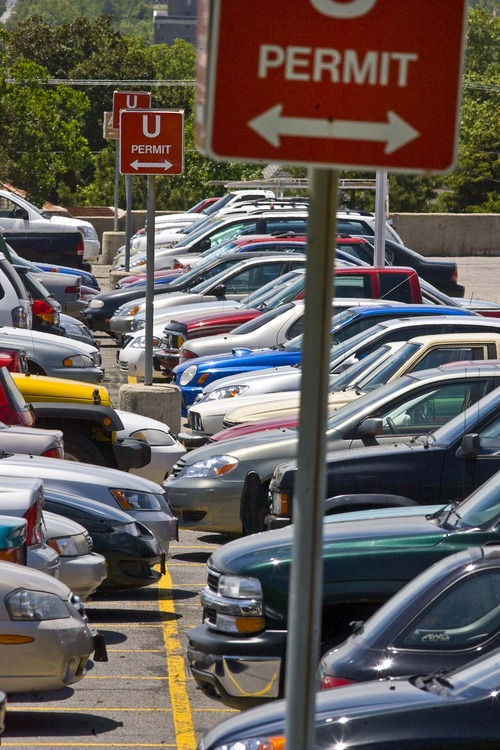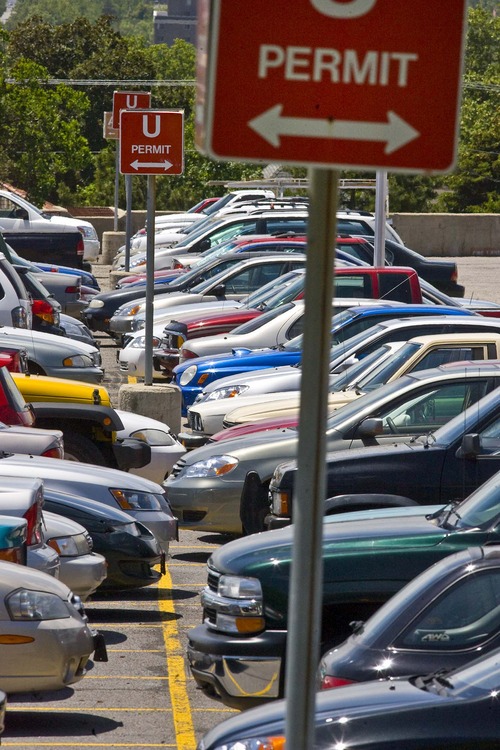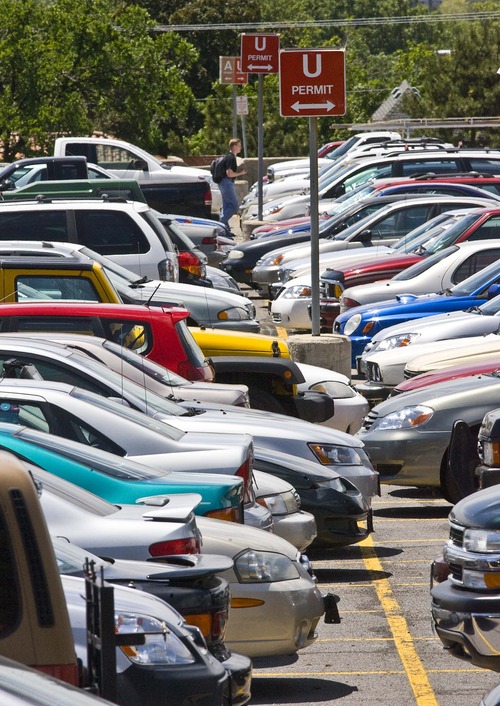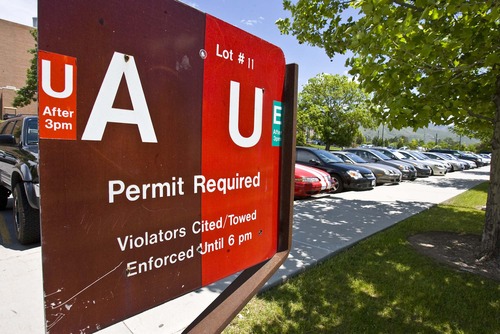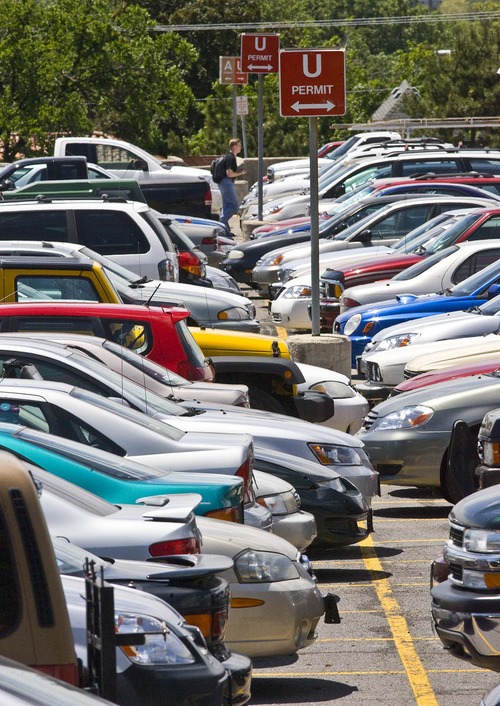This is an archived article that was published on sltrib.com in 2013, and information in the article may be outdated. It is provided only for personal research purposes and may not be reprinted.
Visitors may soon pay much more to park at the University of Utah — double at meters, and at least 50 percent more at parking lots.
But that may help visitors actually find spaces by chasing out students and staff who now often fill up the more convenient visitor parking — even though they have passes for other cheaper lots farther away.
"Students can park on campus for the equivalent of about 75 cents a day if they have a parking permit. We have people who are opting instead to park for a couple dollars an hour" at closer visitor parking, said Alma Allred, director of commuter services.
"It's pushing out visitors who are coming to campus. The problem is they don't have any other option. Students do. They can go from lot to lot," he said.
The university's Parking and Transportation Advisory Committee has endorsed the change, but Allred said several other review steps are needed before final approval is given — and said that process may take months.
In a memo to the committee, Allred wrote, "Currently, 30 percent of our pay lots are filled with vehicles displaying university permits. We need to move those parkers out of the visitor space."
The current rate at visitor lots is $2 for the first hour, plus $1 per hour thereafter up to a maximum of $10. The proposal calls for charging $3 for the first hour and $1 for each half-hour after that, up to a maximum of $15 a day.
Allred said that besides discouraging pass holders from using that parking, charging by the half-hour may also encourage visitors to leave sooner. He wrote that currently, "many opt to stay longer since there is no benefit in leaving once an additional hour's cost is incurred."
At parking meters, Allred is proposing to charge $2 an hour — 50 cents for each quarter hour — instead of the current $1 an hour. He said that will match the rate charged by Salt Lake City.
"The premise of hourly parking at a university is very different than in a city environment. In a city, it's generally to create revenue. In a university environment, it's to create turnover so there are available spaces for people who need them," Allred said.


